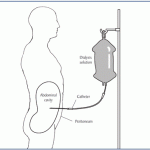
Researchers have concluded that fluid in the lungs is a better predictor of the risk of dying or having a heart attack than other symptoms of heart failure.
Patients undergoing kidney dialysis are at risk of heart failure. In some cases, the dialysis itself may be a contributing factor to heart problems.
The U.S. Food and Drug Administration is investigating whether Fresenius Medical Care, a company that operates and supplies dialysis centers, sat on information suggesting that one of its products carries a potentially lethal risk.
In November, 2011, Fresenius sent out an internal memo to its own doctors stating that 941 patients suffered cardiac arrest in Fresenius clinics in 2010, and the incidents may be associate with a product called GranuFlo. Yet the company did not inform other clinics of this concern until March, 2012, and only did so after an anonymous tipster gave the U.S. Food and Drug Administration a copy of the in-house warning.
Researchers in the ultrasound study mentioned in U.S. News and World Report measured the amount of lung congestion in nearly 400 dialysis patients using ultrasound. They found that 14 percent of the patients had severe lung congestion and 45 percent had moderate-to-severe congestion.
But of those in the latter group, 71 percent showed no symptoms of it. And during two subsequent years of follow-up, researchers found that dialysis patients with severe congestion had a 4.2-fold increased risk of dying and a 3.2-fold increased risk of having a heart attack or other heart problems, compared to patients with mild or no lung congestion.
You should consult with a doctor before making any change in your medical care. If you or a loved one have suffered injury or death after kidney dialysis, contact Lopez McHugh for a free consultation; we can help determine if GranuFlo was used.
See the story here:
